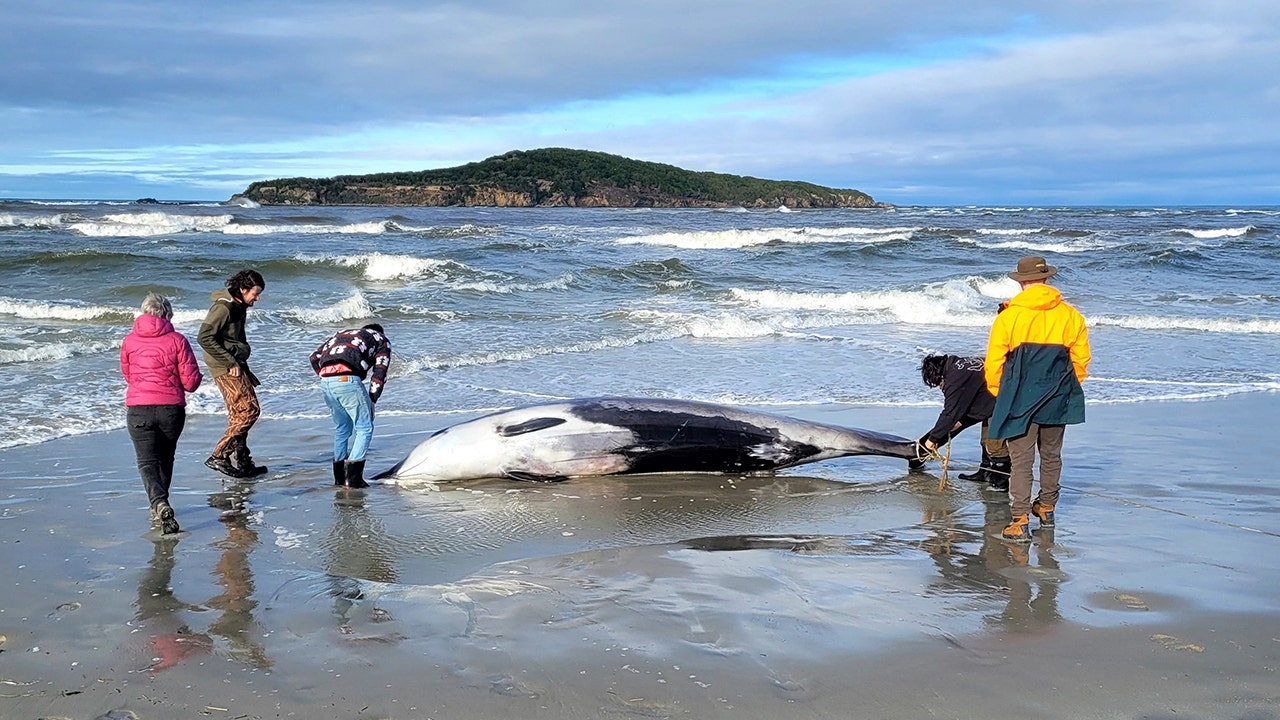New Zealand scientists suspect specimen of world’s rarest whale died from head injuries

Scientists have recently completed the first-ever dissection of a spade-toothed whale, a rare type of beaked whale, in New Zealand. The specimen, a perfectly preserved 16-foot male, was found washed up on a beach in July, marking the first complete specimen ever recorded. This discovery is significant as there have only been seven known sightings of this elusive whale, and none of them were of a living specimen.
During the dissection, experts found that the whale had suffered from a broken jaw and bruising to the head and neck, leading them to suspect that head trauma may have been the cause of its death. Anton van Helden, a beaked whale expert, stated that while the exact cause of the trauma is unknown, it likely contributed to the whale’s demise.
One of the most intriguing findings from the dissection was the presence of vestigial teeth in the whale’s upper jaw. This discovery sheds light on the evolutionary history of these unique creatures. The specimen also had nine stomach chambers containing squid and parasitic worms, providing valuable insight into the spade-toothed whale’s feeding habits.
The dissection process was a collaborative effort between scientists, curators, and local Māori people, who incorporated Indigenous knowledge and customs into each step. Following the dissection, the local tribe will keep the jawbone and teeth of the whale, while the skeleton will be displayed in a museum. 3D printing will be used to replicate the parts retained by the tribe.
In Māori culture, whales are considered taonga, or precious treasures, and are treated with the utmost reverence. This approach to the whale’s dissection highlights the importance of incorporating Indigenous perspectives and traditions into scientific research.
New Zealand is known for being a hotspot for whale strandings, with over 5,000 recorded episodes since 1840. The first spade-toothed whale bones were discovered in 1872, with subsequent findings in the 1950s and 1986 in different locations.
Overall, the dissection of the spade-toothed whale has provided valuable insights into this rare species and has highlighted the importance of collaboration between scientists and Indigenous communities in understanding and preserving our planet’s biodiversity.




